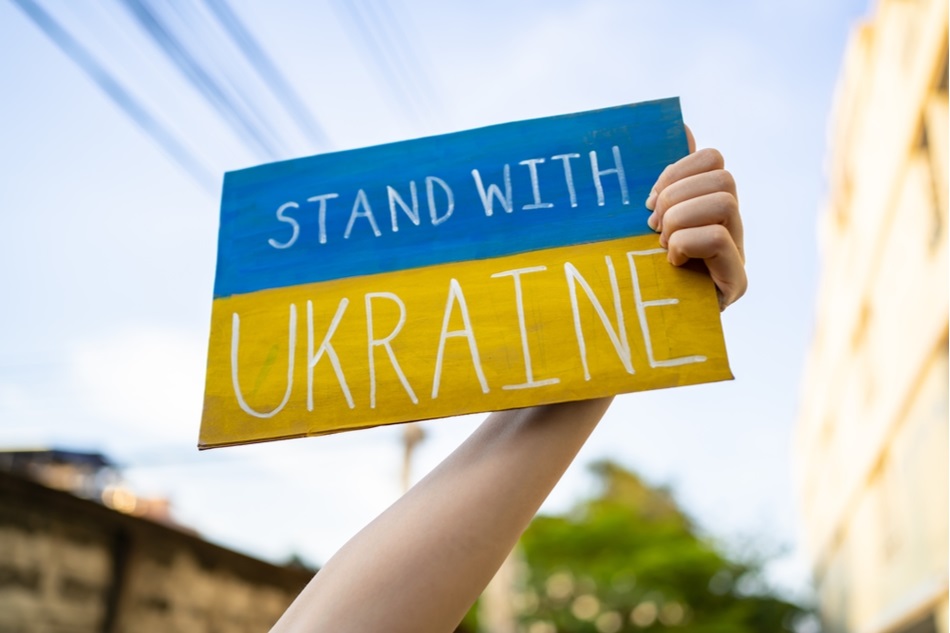While Russian troops continue to push into Ukraine, more and more people all over the world and across Europe are banding together to show support and solidarity against this violent assault. Though these are scary and uncertain times, it is encouraging to see how humanity can find common ground to stand up against brutality.
Demonstrations across Europe
On Saturday in Frankfurt, Germany, approximately 7,000 took to the streets to rally for Ukraine against the Russian military invasion, and Munich’s demonstrators tallied up to about 5,000. The protestors stood under the slogan: “Solidarity with Ukraine—peace in eastern Europe.” An estimated 4,000 more marched in the city of Dusseldorf, and in Berlin, Germany’s capital, at least 100,000 people protested.
On the same day in Estonia, police estimated that as many as 30,000 people attended the protest, where President Alar Karis deemed Russia’s actions as “inconceivable, absurd, and horrific,” while encouraging his people to “open the souls and doors of Estonia to Ukrainian refugees.”
Other cities across the EU also held protests that brought thousands of people to the streets to condemn the Kremlin over its aggression, including London, Paris, Rome, Brussels, Vienna, Madrid, Sofia, and Amsterdam.
Protests within Russia
Russians have also been protesting the attacks on Ukraine, though none of them were formally permitted by authorities. On top of these demonstrations, over 300 doctors, nurses, and paramedics signed an open letter addressed to Russian President Vladimir Putin condemning the attack. The letter reads: “War is a humanitarian catastrophe that leads to pain and suffering… We consider violent solutions to political conflicts inhumane and call upon you to cease fire and begin negotiations.”
Since the beginning of the war on Thursday, more than 3,000 people have been arrested for demonstrating against it.
Public pressure
Though Moscow’s attack on Ukraine sits right on Europe’s doorstep, the wave of condemnation reaches far beyond the EU. Writers, directors, and artists of Russian descent and/or origin are speaking out against the war, wherever they are, and urge their fellow citizens to join their voices to their outcry, with those remaining silent coming under increasing pressure to make their stance clear.
For example, the conductor of the Munich Philharmonic Orchestra, Valery Gergiev, is known to be a friend of Putin’s and has also supported Russia’s 2014 annexation of Crimea. In protest, the city has given Gergiev an ultimatum—he must speak out against the war publicly, or else he will lose his role.
Other orchestras in Hamburg, the Netherlands, and the US have also canceled scheduled concerts with Gergiev or have called on him to publicly distance himself from Putin’s war on Ukraine.










